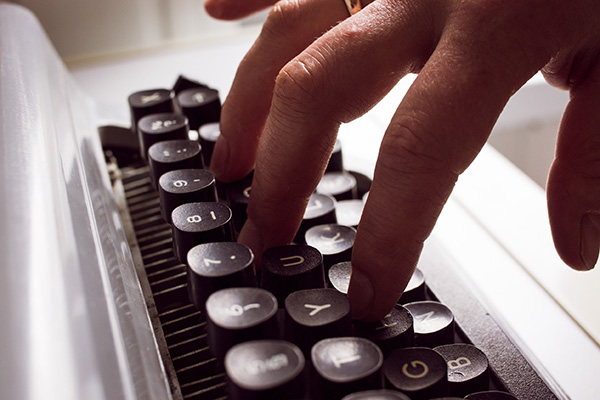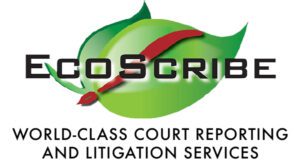
In the legal world, every detail matters. From the smallest piece of evidence to the most compelling witness testimony, every element can make or break a case. This is where the role of a deposition court reporter becomes crucial. A deposition court reporter is an unsung hero, capturing every word, every pause, and every emotion during a legal deposition. With a keen eye for detail and lightning-fast typing skills, these professionals are responsible for creating an accurate and comprehensive record of the proceedings. But their role goes beyond mere transcription; they are also skilled in the art of maintaining decorum, ensuring that all parties have a fair chance to present their case. In this article, we will delve into the world of deposition court reporters and explore everything you need to know about their vital role in the legal system. Whether you’re a legal professional or simply interested in the intricacies of the justice system, this guide will provide valuable insights into the unsung heroes of the courtroom.
Importance of Deposition Court Reporters
Deposition court reporters play a critical role in the legal process. Their primary function is to create an accurate and impartial record of the deposition, which is a crucial part of any lawsuit. A deposition is a pretrial procedure where witnesses provide sworn testimony that can be used as evidence during the trial. It is essential to have an accurate record of these proceedings as they can significantly impact the outcome of a case.
Deposition court reporters are trained to capture every word spoken during the deposition. They use specialized equipment, such as stenotype machines or digital recording devices, to transcribe the proceedings in real-time. Their ability to accurately capture every detail ensures that there is an official record of the deposition, which can be referred to later during the trial or settlement negotiations.
In addition to creating a verbatim transcript, deposition court reporters also provide support to the attorneys involved in the case. They can mark exhibits, swear in witnesses, and ensure that the deposition proceeds smoothly. Their presence in the room adds a level of professionalism and credibility to the proceedings, instilling confidence in all parties involved.
Deposition court reporters are indispensable in the legal industry. Their meticulous attention to detail and commitment to accuracy make them an invaluable asset to attorneys, judges, and clients alike. Without their expertise, the legal system would lack the necessary documentation to ensure justice is served.
Skills and Qualifications Required for Deposition Court Reporters
Being a deposition court reporter requires a unique set of skills and qualifications. First and foremost, court reporters must have excellent typing skills. They need to be able to transcribe the spoken word quickly and accurately. This means they must be able to type at least 225 words per minute, which is the standard requirement for most court reporting certification programs.
In addition to fast typing, court reporters need to have exceptional listening skills. They must be able to understand and accurately transcribe spoken language, even in situations with multiple speakers or when the audio quality is poor. This requires a high level of concentration and the ability to filter out background noise and distractions.
Court reporters also need to have a solid understanding of legal terminology and procedures. They must be able to accurately transcribe complex legal discussions and properly format the resulting transcript. A thorough knowledge of grammar, punctuation, and spelling is essential to ensure the transcript is error-free and maintains its integrity as a legal document.
Furthermore, court reporters must be detail-oriented and possess strong organizational skills. They are responsible for keeping track of exhibits, marking important passages, and creating an index of the transcript. These tasks require a meticulous approach and the ability to manage large volumes of information effectively.
Duties and Responsibilities of Deposition Court Reporters
Deposition court reporters have a wide range of duties and responsibilities. Their primary responsibility is to create an accurate and complete transcript of the deposition. This involves listening to the proceedings and accurately transcribing everything that is said. They must capture not only the words spoken but also any gestures, emotions, or other non-verbal cues that may be relevant to the case.
Court reporters are also responsible for marking and managing exhibits during the deposition. They must ensure that each exhibit is properly identified and recorded in the transcript. This includes describing the exhibit, noting who presented it, and indicating when it was introduced into evidence.
Additionally, court reporters are responsible for maintaining the confidentiality and security of the deposition transcript. They must adhere to strict ethical standards and protect the privacy of all parties involved. This includes safeguarding the transcript from unauthorized access and maintaining its integrity as an official legal document.
Deposition court reporters may also be called upon to provide real-time transcription services. This involves using specialized software and equipment to display the transcript on a screen in real-time during the deposition. Real-time transcription allows attorneys to follow along with the proceedings and search for specific passages quickly. It can be particularly useful during cross-examinations when attorneys need to refer to previous testimony.
Overall, deposition court reporters play a vital role in the legal process. Their attention to detail, accuracy, and professionalism ensure that the deposition is properly documented and can be used effectively during the trial or settlement negotiations.
The Process of Conducting a Deposition
Conducting a deposition is a structured process that involves several key steps. Understanding the deposition process is essential for deposition court reporters, as it allows them to anticipate what will happen during the proceedings and ensure they capture everything accurately.
The first step in the deposition process is scheduling the deposition. This involves coordinating the availability of all parties involved, including the attorneys, witnesses, and court reporter. Once a suitable date and time are agreed upon, the deposition can proceed.
On the day of the deposition, all parties gather at a predetermined location, typically a conference room. The court reporter sets up their equipment, ensuring that it is in working order and properly calibrated. The court reporter also swears in the witness, reminding them of their obligation to tell the truth.
Once the deposition begins, the attorneys take turns asking questions of the witness. The court reporter listens attentively and transcribes everything that is said. It is crucial for the court reporter to accurately capture the questions, answers, and any objections or comments made during the deposition.
Throughout the deposition, the court reporter may be called upon to mark exhibits or make annotations in the transcript. This requires quick thinking and the ability to multitask effectively. The court reporter must ensure that they do not miss any important details while performing these additional tasks.
Once the deposition is complete, the court reporter reviews their transcript for accuracy. They may make minor edits or corrections to ensure that the final document is error-free. The transcript is then provided to the attorneys involved in the case, who can use it to prepare for trial or settlement negotiations.
The process of conducting a deposition requires precision and attention to detail. Deposition court reporters play a crucial role in ensuring that the process runs smoothly and that an accurate record of the proceedings is created.
Common Challenges Faced by Deposition Court Reporters
While deposition court reporters are highly skilled professionals, they face several challenges in their line of work. One of the most significant challenges is dealing with difficult or uncooperative witnesses. Some witnesses may be evasive, argumentative, or refuse to answer questions. This can make it challenging for court reporters to accurately transcribe the testimony and may require them to intervene to maintain decorum.
Another challenge court reporters face is dealing with technical issues. Equipment malfunctions, poor audio quality, or power outages can disrupt the deposition and make it difficult to accurately transcribe the proceedings. In such cases, court reporters must be resourceful and find alternative solutions to ensure that an accurate record is created.
Depositions can also be emotionally charged events, especially in high-stakes cases. Witnesses may become upset, angry, or confrontational, which can create a hostile environment. Court reporters must remain calm and composed, ensuring that they accurately capture the emotions and reactions of all parties involved without allowing their own emotions to interfere.
Lastly, court reporters often face tight deadlines and time constraints. They must transcribe the deposition promptly to ensure that the transcript is available when needed by the attorneys. This requires efficient time management skills and the ability to work under pressure.
Despite these challenges, deposition court reporters are highly skilled professionals who are trained to handle difficult situations. Their expertise and dedication to their craft ensure that the deposition process remains fair, accurate, and impartial.
Technology Advancements in Deposition Court Reporting
Technology has significantly transformed the field of deposition court reporting. Traditional stenotype machines have been replaced by advanced computer-aided transcription (CAT) software, which allows court reporters to transcribe proceedings faster and more accurately.
CAT software works by connecting the court reporter’s stenotype machine to a computer. As the court reporter presses the keys on the stenotype machine, the software translates the keystrokes into English text in real-time. This allows the court reporter to transcribe the proceedings quickly and efficiently.
Real-time transcription has also become an integral part of modern deposition court reporting. With real-time transcription, the court reporter’s transcript is displayed on a screen in real-time, allowing attorneys to follow along with the proceedings and search for specific passages instantly. Real-time transcription can significantly enhance the efficiency of the deposition process and facilitate more effective questioning and cross-examination.
Advancements in audio and video technology have also had a profound impact on deposition court reporting. High-quality audio recordings and video depositions can be synchronized with the transcript, allowing attorneys to review the testimony and assess the credibility of witnesses more effectively.
Additionally, cloud-based storage and electronic document management systems have made it easier to store, access, and share deposition transcripts securely. Attorneys can now access deposition transcripts remotely, eliminating the need for physical copies and reducing the risk of loss or damage.
Technology has undoubtedly revolutionized the field of deposition court reporting, making the process more efficient, accurate, and accessible. Court reporters who embrace these technological advancements are better equipped to meet the demands of the modern legal industry.
Training and Certification for Deposition Court Reporters
Becoming a deposition court reporter requires specialized training and certification. The specific requirements vary depending on the jurisdiction, but most court reporters complete a formal court reporting program and obtain certification from a recognized professional association.
Court reporting programs are typically offered by community colleges, technical schools, or online institutions. These programs provide comprehensive training in stenography, transcription techniques, legal terminology, and court procedures. Students also learn how to use CAT software and other technological tools commonly used in the field.
After completing a court reporting program, aspiring court reporters must pass a certification exam. The most common certification is the Registered Professional Reporter (RPR) certification, which is offered by the National Court Reporters Association (NCRA). The RPR exam tests the candidate’s skills in stenography, transcription, and knowledge of legal procedures.
Some court reporters may choose to pursue additional certifications to specialize in specific areas of court reporting. For example, the Certified Realtime Reporter (CRR) certification is designed for court reporters who provide real-time transcription services. The Certified Broadcast Captioner (CBC) certification is for court reporters who provide closed-captioning services for live broadcasts.
Continuing education is also an important component of maintaining certification as a court reporter. Court reporters must stay up-to-date with advancements in technology, changes in legal procedures, and developments in the field. This ensures that they continue to provide accurate and reliable services to their clients.
How to Find and Hire a Skilled Deposition Court Reporter
Finding and hiring a skilled deposition court reporter is essential for attorneys and law firms. The accuracy and professionalism of the court reporter can significantly impact the outcome of a case. Here are some tips for finding and hiring the right court reporter for your needs:
1. Ask for recommendations: Reach out to colleagues and other legal professionals for recommendations. Word-of-mouth referrals are often the best way to find reliable and skilled court reporters.
2. Research professional associations: Check the websites of professional associations, such as the National Court Reporters Association, for directories or databases of certified court reporters. These organizations often have rigorous requirements for membership, ensuring that their members are highly qualified.
3. Review qualifications and certifications: When evaluating court reporters, consider their qualifications, certifications, and years of experience. Look for court reporters who have experience in your specific area of law and are familiar with the nuances and terminology involved.
4. Assess technology skills: Inquire about the court reporter’s proficiency in using CAT software, real-time transcription tools, and other technological advancements. A court reporter who is comfortable with technology can provide more efficient and accurate services.
5. Read reviews and testimonials: Look for online reviews or testimonials from previous clients. This can give you valuable insights into the court reporter’s professionalism, accuracy, and reliability.
6. Conduct interviews: Before making a final decision, consider conducting interviews with potential court reporters. This will allow you to assess their communication skills, professionalism, and willingness to accommodate your specific needs.
7. Consider budget and availability: Discuss fees and availability with potential court reporters. Ensure that their rates align with your budget and that they can accommodate your desired deposition schedule.
By following these tips, you can find and hire a skilled deposition court reporter who will provide accurate and reliable services throughout your case.
Conclusion: The Indispensable Role of Deposition Court Reporters in the Legal Industry
Deposition court reporters are the unsung heroes of the legal industry. Their ability to capture every word, every pause, and every emotion during a deposition is crucial for the administration of justice. These highly skilled professionals ensure that an accurate and comprehensive record of the proceedings is created, which can be used as evidence during trial or settlement negotiations.
Deposition court reporters possess a unique set of skills and qualifications that enable them to excel in their field. Their fast typing, exceptional listening, and attention to detail ensure that the transcription is accurate and error-free. They play a crucial role in maintaining decorum during the deposition, ensuring that all parties have a fair chance to present their case.
Advancements in technology have transformed the field of deposition court reporting, making the process more efficient and accessible. Court reporters who embrace these technological advancements are better equipped to meet the demands of the modern legal industry.
If you are in need of a skilled deposition court reporter, consider following the tips provided in this article to find and hire the right professional for your needs. The accuracy and professionalism of the court reporter can significantly impact the outcome of your case.
In conclusion, deposition court reporters are indispensable in the legal industry. Their commitment to accuracy, professionalism, and the administration of justice make them an invaluable asset to attorneys, judges, and clients alike. The next time you find yourself in a deposition, take a moment to appreciate the unsung heroes behind the stenotype machine, diligently capturing every word, pause, and emotion.
At EcoScribe, we have high quality deposition court reports who are available for in person and remote depositions. Please contact us to learn more.

